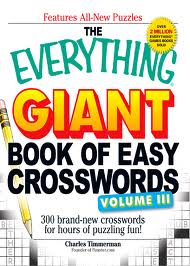Situation #1: I had just escorted the new client into the
boardroom. We sat across from each other exchanging pleasantries until he
leaned towards me, placed his elbows on the broad oak table and clasped his
hands together as he told me his story. It seemed as if he could easily slip to
his knees on the floor in an attitude of prayer, as he might have knelt beside his bed when he was a child. He seemed earnest, too earnest. He was
trying too hard to make me believe what he was saying. Insist that we might, he
was not believable. I found myself backing away from representing him.
Situation #2: It was a typical stand-up cocktail party, the
kind where you move aimlessly around the room making small talk with people you
may have never met before, and may never meet again. Everyone seemed at least slightly
uncomfortable, most of them thinking about something other than the
superficial conversations they are apparently engaged in. But the couple I was
speaking to responded with more than the easy answers to my relatively innocent
inquiries. It seems as if there was a reason for them to be disclosing, to be
honest, even transparent. Within minutes there were tears shed, great pain
acknowledged and difficult things shared. The truth had drawn virtual strangers
together, if only briefly.
Situation #3: Our paths had crossed at several junctions, yet
we had never had an opportunity to exchange more than polite pleasantries. But
the couple I was seated next to at the wedding reception seemed to have a story
to tell, a confession to make. In short order the secret was out. Despite
the pained expression on their faces, there was also relief. The truth was known,
and it was freeing. Of course, the admissions of past failure were not made
without risk. There is always risk in the telling of the truth or a lie. So what
is the difference? There is no potential for freedom in telling a lie. There is
no potential for depth in relationship when wearing a disguise. One can only be
loved to the extent one is known.
And so, too, with Parkinson’s. It seems that, despite the
long history of this disease, there are many who know nothing about it. Of
course, we who have it are anxious to disguise its symptoms. Self-conscious, we sit on our shaking hands
or stuff them in our pockets to avoid the questioning glances. We avoid social
situations that demand agility and fine motor skills to navigate crowded room
with a drink in one hand and a plate of canapés in the other. We hide the ever-increasing
loss of control, as if admitting to our ailments were a sign of weakness, the
painful recognition of our diminished value in a society that praises
proficiency and power.
April is Parkinson’s Awareness Month, but I find myself
wondering what that is supposed to mean. Sure, there are fundraising events and
television campaigns. And, perhaps, the general public becomes marginally more
aware of something called “Parkinson’s disease”. But in a culture where life is
lived at the speed of a Google search, and retention of information is limited
to the overloaded capacity of human (and digital) memory, “awareness” often becomes
a vague and overstated achievement. Ask any person at the end of April how much
more he or she now knows about Parkinson’s disease. Not much, I expect. Why?
I have a new idea for “Parkinson’s Awareness
Month”. Let those of us who have this chronic, degenerative and incurable
disease just tell the truth to a few who might be interested in listening.
Certainly, there are risks, but isn’t it better that the truth be told, the
whole truth and nothing but the truth? How can we advocate awareness when we
are afraid to share the truth?
http://www.youtube.com/watch?v=IH-1-00cQok
















